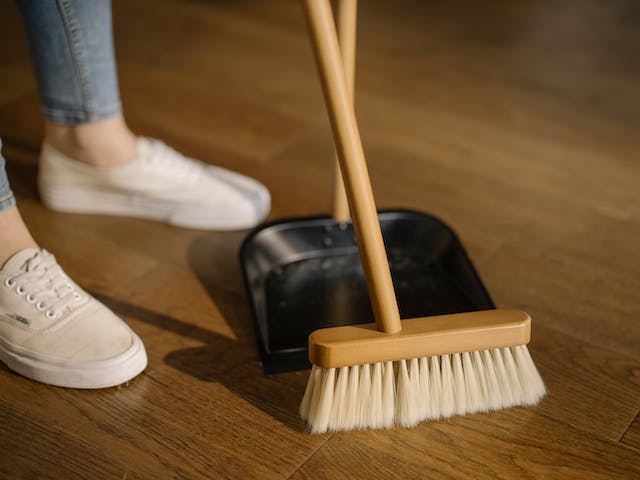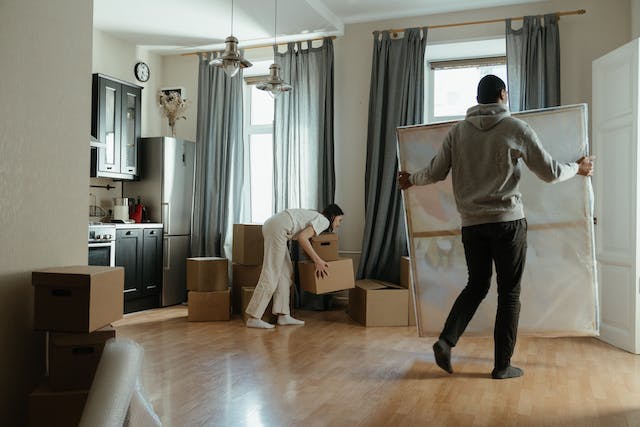
As a landlord, one of your key responsibilities is maintaining the quality and safety of your rental property. Regular property inspections are crucial in this regard. This post will cover the reasons and benefits for conducting consistent rental inspections.
Reasons to Perform Rental Inspections
Here are the reasons why you should perform regular property inspections:
Protecting Your Investment
Your rental property is a significant investment, and regular inspections are vital to protect its value. These inspections allow you to identify and address maintenance issues before they escalate into costly repairs. For example, a small leak can turn into major water damage if not caught early. By proactively managing these issues, you maintain the property's value and appeal.
Ensuring Tenant Safety
Tenant safety should be a top priority for every landlord. Regular inspections help you ensure that your property meets all safety standards and regulations. This includes checking smoke detectors, ensuring electrical systems are up to code, and inspecting for potential hazards like mold or structural weaknesses. By prioritizing safety, you not only comply with legal requirements you also show your tenants that their well-being is important.
Encouraging Tenant Responsibility
Regular inspections can also encourage tenants to better maintain and clean the property. When tenants know that an inspection is upcoming, they are more likely to keep the property clean and report any issues. This proactive approach can reduce wear and tear, ultimately saving you money on maintenance and repairs in the long run.

Identifying Unauthorized Alterations or Uses
Occasionally, tenants may make alterations to the property or use it in ways not agreed upon in the lease agreement. Regular inspections allow you to identify such issues early on. For instance, if a tenant has modified a part of the property, you can address these issues promptly to prevent further violations.
Enhancing Tenant Retention
Well-maintained properties are more likely to retain tenants. Regular inspections and the subsequent upkeep show tenants that you are committed to providing a quality living environment. Satisfied tenants are less likely to move, reducing your vacancy rates and the costs associated with finding new renters.
Legal Compliance and Documentation
Regular inspections also help ensure that you are in compliance with local housing laws and regulations. Documenting these inspections and any actions taken as a result is crucial. This documentation can be invaluable in case of disputes or legal issues, providing evidence that you have diligently maintained the property.
Different Types of Inspections
Landlords can conduct several types of inspections, each serving a specific purpose. Understanding these different inspections is key to effective property management and maintaining a good relationship with tenants. Here are the three common types of inspections:
Move-In Inspection
This inspection is conducted before a new tenant moves in. The primary goal is to document the property's condition, noting any existing damages or issues. Both the landlord and the tenant typically walk through the property together, inspecting each room and noting the state of walls, floors, fixtures, and appliances.

This inspection provides a baseline for comparing the property's condition at the end of the tenancy, which is crucial for addressing any damages that occur during the tenancy.
Routine/Periodic Inspection
Conducted at regular intervals during a tenant's occupancy, these inspections monitor the property’s ongoing condition and maintenance needs. The landlord checks for any needed repairs and ensures that the tenant is complying with the lease terms. Routine inspections help identify maintenance issues early, maintain property standards, and foster open communication between landlord and tenant.
Move-Out Inspection
Conducted after a tenant vacates the property, this inspection assesses the property's condition compared to the move-in inspection report. This inspection is essential for determining if any portion of the security deposit will be withheld for repairs or cleaning, and it prepares the property for the next tenant.
Best Practices for Conducting Inspections
To maximize the benefits of property inspections, consider the following best practices:
- Schedule Regularly: Establish a routine schedule for inspections
- Provide Notice: Always give your tenants adequate notice before an inspection
- Be Thorough: Check all areas of the property, including the exterior for signs of damage or wear and tear
- Engage Tenants: Use inspections as an opportunity to engage with tenants, listen to their concerns, and gather feedback
- Follow-Up: After the inspection, promptly address any issues identified and keep tenants informed about any maintenance work

Tips for Maintaining Property Upkeep
Here are key strategies for maintaining the upkeep of your rental property:
Promptly Address Repairs and Maintenance Issues
When tenants report issues, respond promptly. This not only prevents minor issues from becoming major problems but also shows tenants that you are attentive. Schedule regular maintenance for key elements like heating and cooling systems, plumbing, electrical systems, and appliances. Furthermore, use qualified contractors for repairs.
Implement a Preventative Maintenance Plan
Create a schedule for regular check-ups of critical areas such as the roof, gutters, foundations, and exteriors to prevent issues. Adjust your maintenance plan according to the seasons. Regular landscaping maintenance not only enhances curb appeal but can also prevent problems like overgrown trees damaging the property.
Engage Tenants in Upkeep
Clearly communicate to tenants their responsibilities regarding property upkeep, as outlined in the lease agreement. Then provide tenants with information on how to care for the property, like basic troubleshooting of appliances and whom to contact for maintenance issues. You should also consider rewards or incentives for tenants who maintain the property well, such as a small rent reduction.
Bottom Line
Regular property inspections are a fundamental aspect of being responsible landlords. This not only safeguards your property but also fosters a positive and professional relationship with your tenants. Remember, a well-maintained property is not just a good business practice; it's also a reflection of your commitment to providing quality living space for your tenants. If you need help, contact Schambs Property Management today!